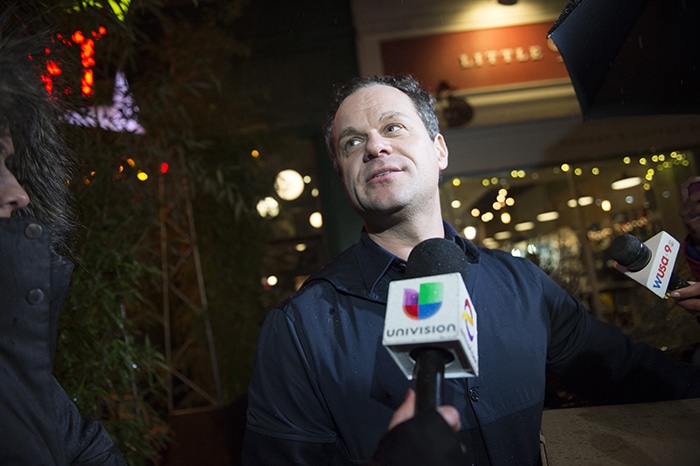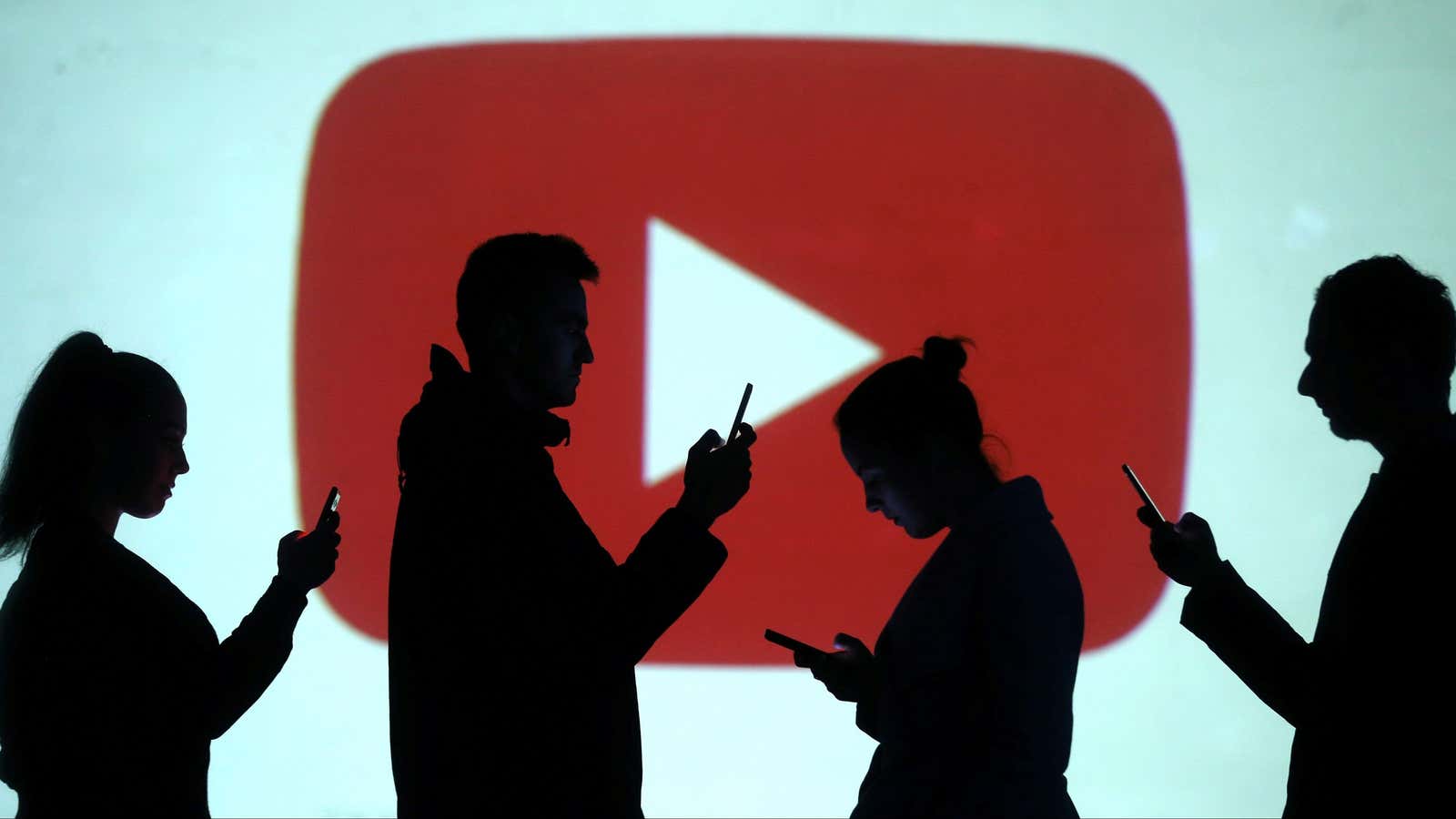Two years after the #Pizzagate conspiracy theory first emerged on social media platforms like YouTube, the persistent threat of hateful conspiracies continues to plague the online landscape. Despite efforts to debunk and discredit the baseless claims that a Washington D.C. pizza restaurant was the center of a child trafficking ring involving high-profile politicians, the spread of misinformation on YouTube remains a significant concern.
The platform’s algorithmic recommendation system has been criticized for promoting fringe content and conspiracy theories to users, leading to the proliferation of harmful narratives that can have real-world consequences. The ability for these conspiracy theories to gain traction and reach a wide audience on YouTube poses a serious challenge for those seeking to combat misinformation and hate speech online.
As we reflect on the impact of #Pizzagate two years later, it is clear that the battle against hateful conspiracies on YouTube is far from over. It is essential for platforms and users alike to remain vigilant and actively work towards promoting accurate information and fostering a more responsible online environment.

The Legacy of #Pizzagate
The legacy of #Pizzagate is one that has left a lasting impact on society, particularly in the realm of online conspiracy theories and misinformation. The unfounded allegations of a child sex trafficking ring being run out of a Washington D.C. pizzeria spread like wildfire across social media platforms, leading to a dangerous and baseless witch hunt that put innocent people at risk.
Despite being debunked and discredited, the conspiracy theory continues to linger in the minds of some, perpetuating a culture of distrust and paranoia. The repercussions of #Pizzagate have seeped into the fabric of our digital landscape, highlighting the power and dangers of unchecked information dissemination. The incident serves as a cautionary tale of the potential consequences of blindly believing and spreading false narratives without proper evidence or critical thinking.
It underscores the need for media literacy and critical thinking skills in an age where misinformation can easily be weaponized and used to manipulate public opinion. The legacy of #Pizzagate serves as a reminder of the importance of verifying information and being vigilant against the spread of harmful and baseless claims that can have real-world consequences.
It is a stark reminder of the responsibility that comes with the power of social media and the internet, and the potential harm that can be caused when that power is wielded irresponsibly. In an era where fake news and conspiracy theories run rampant, #Pizzagate stands as a cautionary tale of the dangers of falling prey to false information and the importance of skepticism and critical thinking in navigating the digital landscape.

Current State of Conspiracy Theories on YouTube
Conspiracy theories on YouTube have become increasingly prevalent in recent years, with a wide range of topics being explored and debated by content creators and viewers alike. From discussions about government cover-ups to alleged secret societies controlling world events, these theories have captivated audiences and sparked intense debates. The platform has allowed for the rapid dissemination of these theories, reaching millions of viewers with just a few clicks.
While some may argue that these theories are simply harmless entertainment or a way to question the status quo, others believe that they can have dangerous consequences, leading to misinformation and the spread of fear and paranoia. Despite efforts by YouTube to crack down on false information and conspiracy content, many creators continue to push boundaries and promote controversial ideas. As a result, the current state of conspiracy theories on YouTube remains a hotly debated topic, with no clear consensus on how to address the issue.
As viewers continue to consume this content and creators continue to produce it, the influence and impact of conspiracy theories on YouTube show no signs of slowing down. Whether this trend will continue to grow or eventually fade away remains to be seen, but one thing is certain: the current state of conspiracy theories on YouTube is a complex and multifaceted issue that will continue to provoke debate and discussion for years to come.
YouTube’s Response to Misinformation
YouTube has been under scrutiny for its handling of misinformation on its platform. In response to growing concerns, the company has implemented various measures to address the issue. One of the key strategies YouTube has employed is partnering with fact-checking organizations to verify the accuracy of content. This helps to ensure that users are presented with accurate information and are not misled by false claims.
In addition, YouTube has also taken steps to reduce the spread of misinformation by tweaking its algorithms to prioritize trustworthy sources and downrank questionable content. By promoting reliable sources and reducing the visibility of misleading information, YouTube aims to create a more responsible and trustworthy platform for its users. However, some critics argue that these measures are not sufficient and that YouTube needs to do more to combat misinformation.
They argue that the platform should be more transparent about its policies and practices, and should take a more proactive approach to removing harmful content. Despite these criticisms, YouTube’s efforts to address misinformation are a step in the right direction and demonstrate the company’s commitment to promoting accurate information and protecting its users from the harmful effects of misinformation. The battle against misinformation is an ongoing challenge, and YouTube’s response to the issue will continue to evolve as new technologies and strategies are developed.

The Broader Implications of Conspiracy Theories
Conspiracy theories have far-reaching implications that extend beyond the realm of legality. They can have serious consequences on society, including undermining trust in institutions and eroding social cohesion. When individuals believe in conspiracy theories, they may become more skeptical of information provided by experts and authorities, leading to a breakdown in communication and cooperation. This can hinder efforts to address pressing issues such as public health crises or climate change.
Additionally, conspiracy theories can perpetuate harmful stereotypes and stigmatize marginalized groups, further dividing communities and fostering hostility. In extreme cases, conspiracy theories have been used to justify violence and discrimination against certain groups, posing a threat to the safety and well-being of individuals.
Ultimately, the spread of conspiracy theories can have a destabilizing effect on society, creating a climate of fear, suspicion, and uncertainty. It is important for individuals to critically evaluate information and sources, and to engage in open and respectful dialogue in order to combat the harmful effects of conspiracy theories. By promoting transparency, accountability, and trust, we can work towards building a more united and resilient society.
Moving Forward: What Needs to Change
In order to progress and evolve as a society, it is imperative that we address the underlying issues that are hindering our growth. One of the key areas that needs to change is our approach to diversity and inclusion. We must strive to create an environment where all individuals feel valued and respected, regardless of their background or identity. This means actively challenging systemic biases and discrimination, and promoting a culture of acceptance and understanding.
Additionally, we need to prioritize sustainability and environmental stewardship in all aspects of our lives. Climate change is a pressing issue that requires immediate action, and we must work towards implementing sustainable practices in order to protect our planet for future generations. Furthermore, we must also prioritize mental health and well-being, and work towards breaking the stigma surrounding mental health issues.
This includes providing access to affordable and quality mental health services, as well as promoting open and honest conversations about mental health. Ultimately, in order to move forward as a society, we must be willing to confront and address the challenges that lie ahead, and work together to create a more inclusive, sustainable, and mentally healthy world for all.
